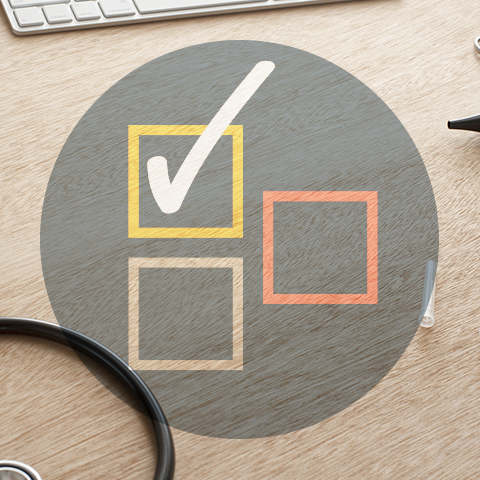
Receiving a diagnosis of dementia, or having a loved one diagnosed, can cause a range of emotions, from shock to relief. But what happens next?
Diagnosis Dementia Checklist
Receiving a diagnosis of dementia, or having a loved one diagnosed, can cause a range of emotions, from shock to relief. But what happens next? We’ve put together a checklist of things for you, your family, and support team to consider over the next few months (or more!) as you navigate your journey.
Learn about your diagnosis
Knowledge is power! Different types of dementia can progress differently, and the more you know, the more you can plan ahead and anticipate future changes.
Check out: Insight's Resource Library
Start the conversation
Determining when, how, and to whom to disclose the diagnosis is a personal decision for your family. Just remember that as more people in your network know, the more support you can build.
Plan for the future: SHARE
The SHARE Program provides a thoughtful way for both partners to plan ahead for future needs. Through this evidence-based, multi-session program, you’ll come away with a plan and the confidence to move forward together.
Check out: SHARE Program
Seek physical & social activity
Engaging in physical and social activities is beneficial for self-esteem, mood, overall function and quality of life. Look for activity programs in your area. It can be a great feeling of comradery for the person living with dementia to have friends in the same boat.
Check out: Insight offers Reconnections for in-person socialization and engagement, and Insight at Home for virtual activities and interaction.
Update legal and financial documents (for both partners!)
Double check your important documents now. Ensure details are correct and take the time now to discuss any major changes or wishes for the future that should be reflected in these documents.
Keep an eye on IADLs
Instrumental Activities of Daily Living, which include tasks like driving and financial management, may be some of the first things that become more difficult as the brain changes. Make plans now to ensure a care partner can provide support, and eventually step in, to handle these tasks in the future.
Join a caregiver support group
The whole family is impacted by a dementia diagnosis. Care partners should consider joining an early stage caregiver support group to meet with others in a similar situation, and learn about community resources available.
Check out: Support Groups
Consider research and trials
While in the early stages, you can sign up for clinical trials or to be alerted in the future if you would be a good fit. You may want to consider trials to help others, receive regular health monitoring, or help develop better treatment options.
Check out: National Institute of Health: clinicaltrials.gov
Blog
"I like that IMCC focuses on dementia-related problems and provides a focal point for families to network and socially interact in coping with dementia. It provides a community that helps us in our struggle."







